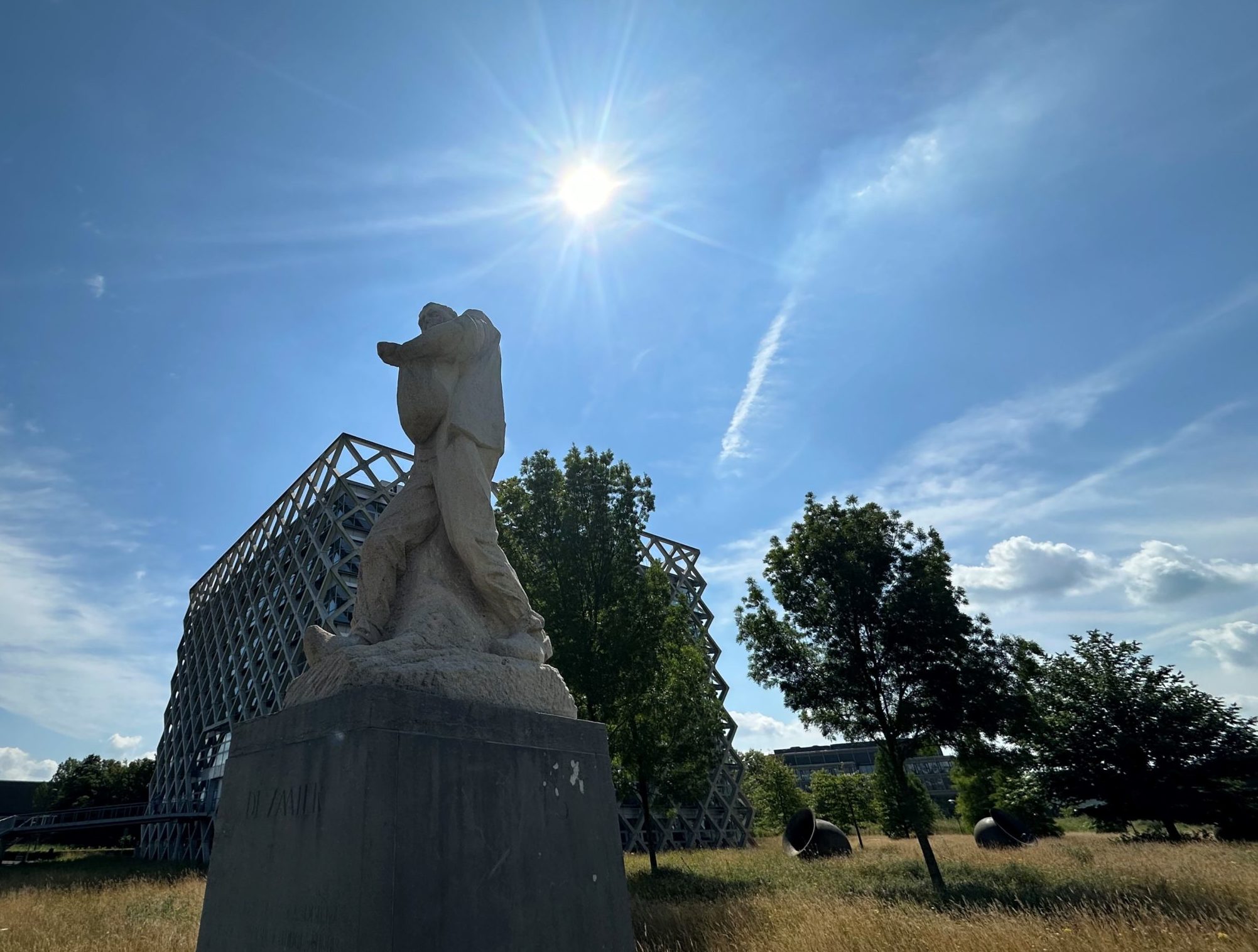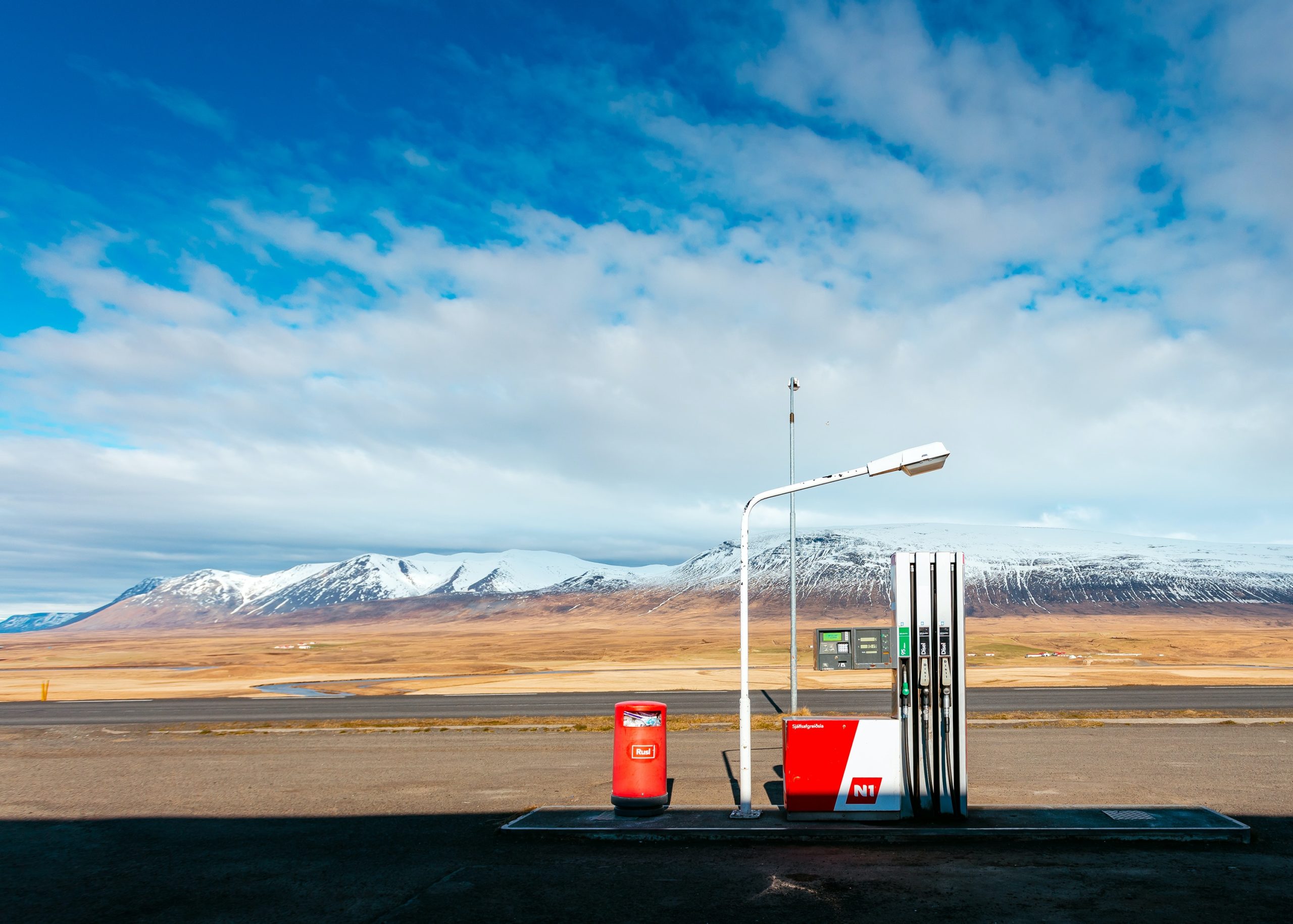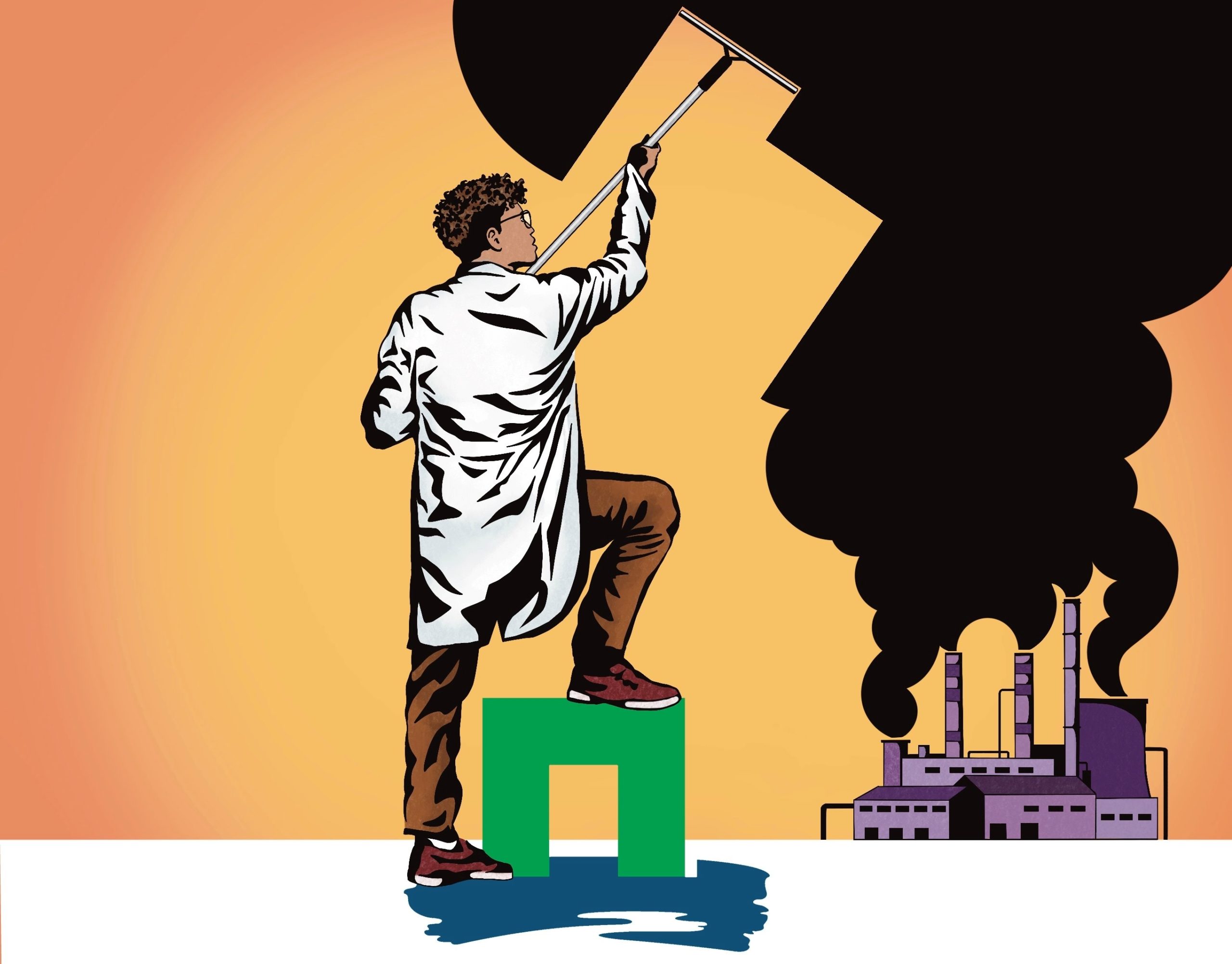After two previous sessions on ties with the fossil industry, the Fossil Free Run, the Scientist Rebellion reading marathon of the IPCC report, and, last but not least, the occupation of Forum, this third Let’s Explore session had all the makings of a final chapter in the story of collaborations with the fossil industry. A group of students awaited the participants at the entrance of Impulse, where the session was to take place, with banners and flyers. Student editor Felix Landman was present and wrote about it.
Tesxt: Felix Landsman
The event was the third session in the series Let’s explore: Collaboration with the fossil fuels industry. The previous two sessions, held on 14 March and 13 April, left some participants dissatisfied. The applied communications concepts of ‘Soft Shoe Shuffle’ and ‘Deep democracy’ did not sufficiently cover the complex issues. After the second session, a small group of students were consulted to discuss improvements, particularly for more democratic discourse and how the outcome could be delivered to the board effectively.
Applause
With over one hundred attendants, the third session is also the busiest in the series. Impulse was alive with students, PhD candidates, researchers and other employees. Inge Wallage (corporate director of Communications & Marketing) welcomed everyone and yielded the stage to executive board member Rens Buchwaldt, who shared his dilemmas. He stated that the WUR Management Board and the EB discuss this issue frequently and opened the session on behalf of the Executive Board. After his contribution, the student group End Fossil, who were given time to speak after the occupation of Forum several weeks ago, took the stage. ‘We came to the world’s most sustainable university to study, but instead, we are directly supporting the destruction of the environment. Don’t you understand that this makes us desperate?’, said one of the End Fossil representatives, followed by a thunderous applause. At the end of their contribution, the delegation handed a petition with six hundred signatures to the board, calling for an immediate end to all ties.
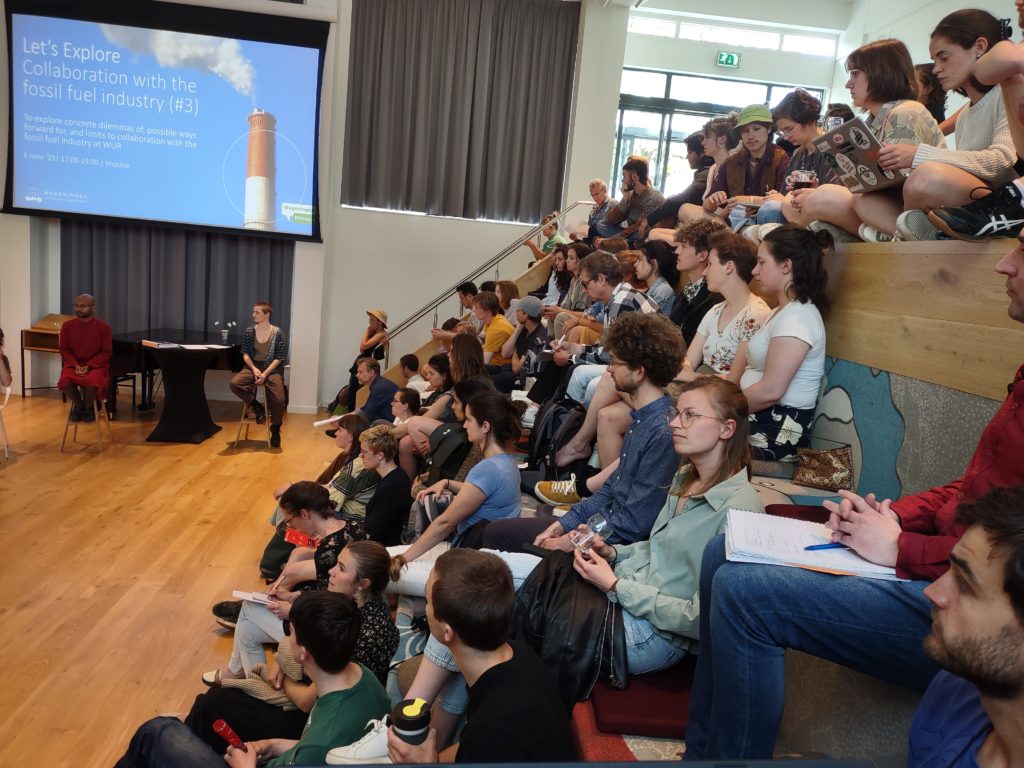
Next, director of Corporate Value Creation, Sebastiaan Berendse, addressed the crowd, describing how WUR deals with its collaboration with the fossil industry. He described the example of research being done on the ecological side effects of fossil infrastructures in the ocean. His talk served to constructively illustrate the other side of the story. Afterwards, the audience was given a few minutes to discuss the contributions with their neighbours.
Tanker
The greater part of the afternoon was made up of break-out sessions in groups of eight to ten people to discuss the advantages and disadvantages of collaboration with the fossil industry. Examples include greenwashing and how to move ahead if WUR should sever their ties. The participants shared personal anecdotes and insights in a comfortable atmosphere. Several students indicated they were happy that the session was so democratic. The group this editor attended focused mainly on the proportionality of ecological damage, greenwashing, democracy and systemic change. The metaphor of a fossil company as an oil tanker was discussed. One student concluded that ‘we are all employees on this tanker, and it will only stop if we all jump overboard.’
Decision
The session ended with a wrap-up by executive board president Sjoukje Heimovaara, who stated: ‘I heel a consensus in that we are all worried about the planet, while at the same time, we are an institute that is based on rationality and that diligently considers its decisions. I hear that other universities also struggle with this issue, but we must consider the long-term, the bigger picture. There is more than just End Fossil.’
There certainly appeared to be a consensus among the students, albeit the common view that ties with the fossil industry are unsustainable. Whether this is the consensus the board was referring to, remains to be seen. The board has announced that a definitive decision on ties with the fossil industry will be taken in mid-July.

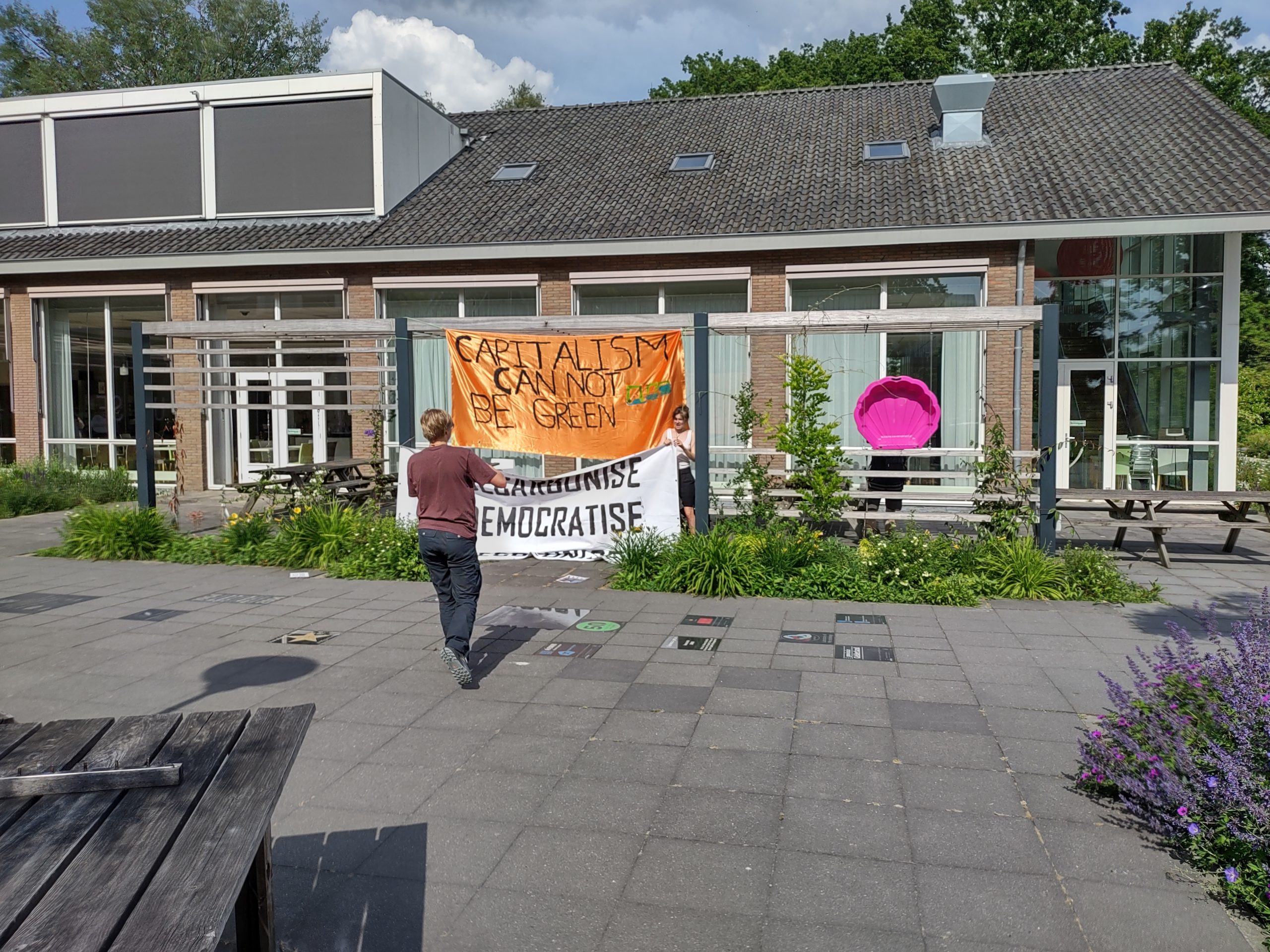 The third and last session in the Let’s Explore: collaboration with the fossil fuels industry was held in Impulse.
Photo: Resource.
The third and last session in the Let’s Explore: collaboration with the fossil fuels industry was held in Impulse.
Photo: Resource.
